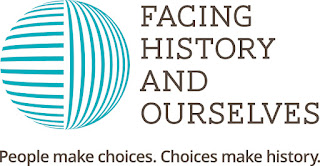A Roadmap for Educating for American Democracy

by Mary Ellen Daneels, Civics Instructional Specialist “a lady asked Dr. Franklin well Doctor what we got a republic or a monarchy— A republic replied the Doctor if you can keep it. The lady here aluded [sic] to was Mrs. Powel of Philadelphia” Diary Entry from James McHenry, September 18, 1787 The famous vignette above was captured by James McHenry, an Irish immigrant who served as an aide to both Washington and Lafayette during the American Revolution and as a delegate to the Constitutional Convention from Maryland. He recorded this exchange in his diary one day after the conclusion of the Convention. Franklin’s words are still relevant today as “we the people” strive “to keep” our constitutional republic. Civic education plays an important role in “keeping” our republic and working towards a “more perfect union” as explained in the excerpt from the 2011 Guardian of Democracy: The Civic Mission of Schools report. Self-government requires far more than voting in election



